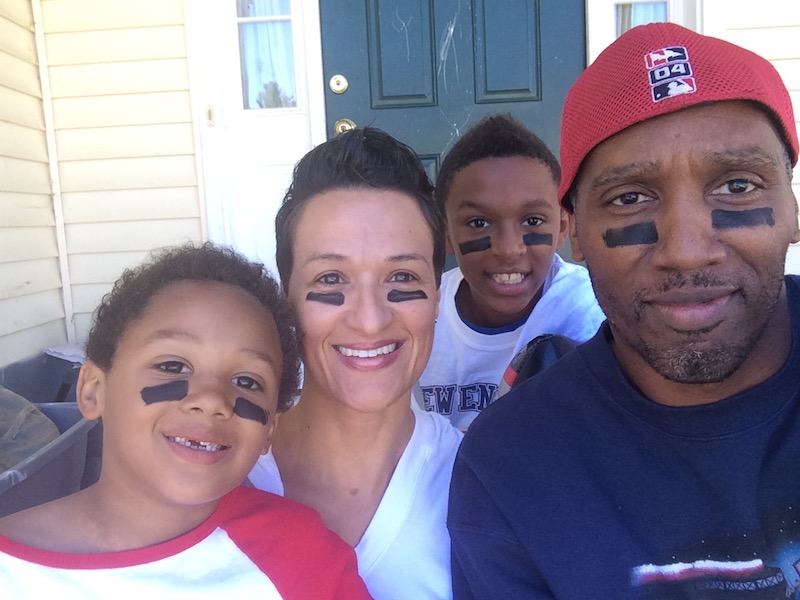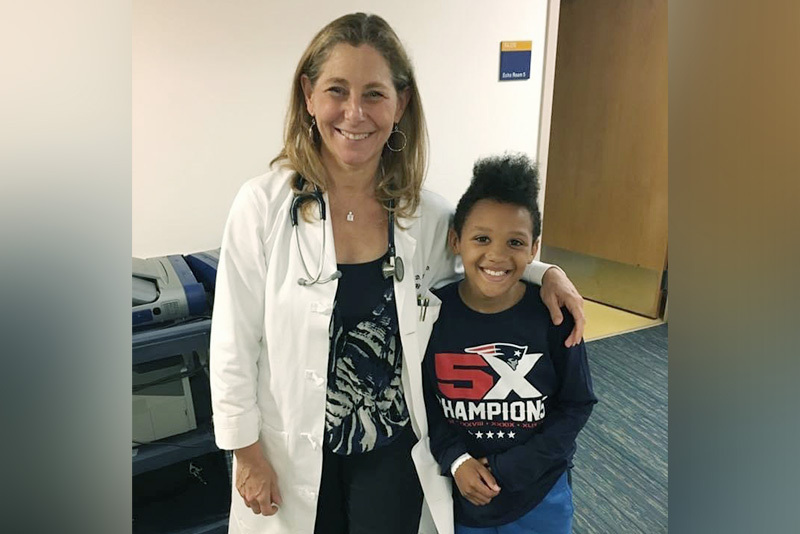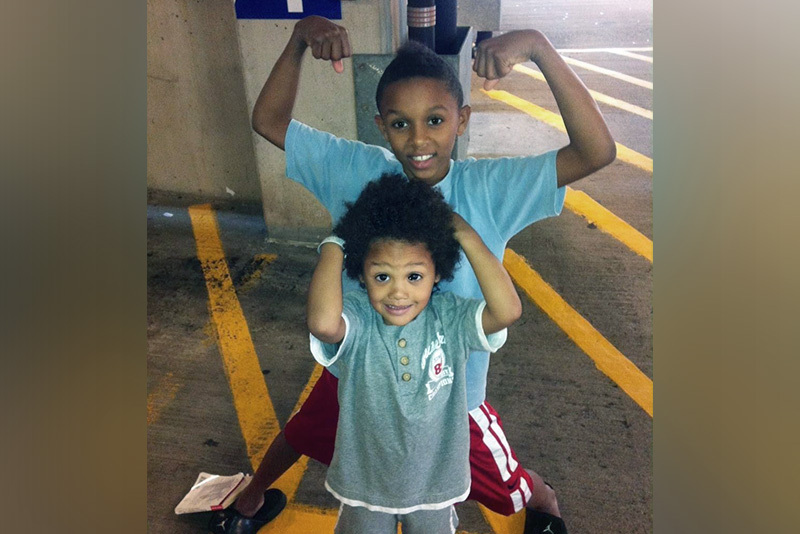From ECMO to star athlete: Kobe’s story

Kobe Perry is fast. This year, the 12-year-old from New Hampshire placed #2 in the United States in the indoor 60-meter sprint and at #10 in the 200-meter for boys in his age group.
“Watching Kobe run now, you would never know that he had a heart condition when he was a toddler and had to be hospitalized,” says his mom, Tia. “His condition was so serious that for a time we thought he might need a heart transplant.”
Kobe was just over a year old when he became sick with what his parents thought was a common cold. “It seemed like a typical illness at first,” says Tia. “But then over the next few days he became extremely lethargic and his skin tone turned grey, like the color of ET. Then he started moaning and groaning.”
Tia and her husband, Reggie, became very concerned and took him to the pediatrician. ”She looked at him and suggested we go to the hospital across the street, which we did right away.”

An ambulance ride to Boston
The doctors at the hospital thought he had a bowel blockage and put him on pain medication. But when a respiratory therapist noticed his breathing was labored, the doctor on call started to suspect a heart problem. She recommended that Kobe be sent to Boston Children’s Hospital and after a consult with the team at the Heart Center, called for an ambulance to transport him.
It was a stressful ride from Nashua to Boston, made less so by the ambulance technicians. “They really prepared me for what to expect once we got to the hospital,” says Tia. “It made it a lot easier when we got there and were met by team of about 30 doctors and hospital staff all waiting for him in the intensive care unit.”
He was intubated shortly after his arrival to help him breathe. “Before they intubated him, the doctor came over, kneeled down next to me, and told me Kobe was very sick and it would help to get him intubated,” says Tia. “I was really impressed by his bedside manner.”
Diagnosis: Myocarditis
After some testing, Kobe was diagnosed with myocarditis, an inflammation of the heart muscle. “They put him in a medically induced coma and put him on medication, hoping that he would recover that way,” says Tia. “When he didn’t, they put him on ECMO (extracorporeal membrane oxygenation). If that didn’t work, the next step was a heart transplant,” says Tia.
Fortunately, Kobe started to recover and his doctors were able to take him off of ECMO after one week. “We were so thankful,” says Tia.
When Kobe finally went home after about 45 days in the hospital, he was taking nine different medications and needed time to recover.
‘Kobe was pretty tired for that first year after coming home,” says Tia. “And at first he was delayed in walking and speech.”

Becoming a football and track star
Since that time, Kobe has more than caught up.
Although Kobe is a track star, his first love is football. One day, he dreams of playing for Boston College as a running back. “Kobe started playing football when he was 7, and he always had this goal of wanting to be really fast,” says Reggie. “We have a family goal of him running a 4.25 40-yard dash, which is a miracle for a boy who spent his first birthday on ECMO. So when he tells me he’s going to play for the NFL, I believe him — he’s already defied one incredible set of odds.”
Kobe continues to see his cardiologist, Dr. Elizabeth Blume, once a year, but has had no ongoing problems with his heart. He’s cleared to do whatever physical activity he wants.
Tia says she feels incredibly grateful that things turned out so well for Kobe. “I am so thankful to Dr. Blume and Kobe’s whole team at Boston Children’s. This experience was by far the worst of my life, but we are so thankful that we had Boston Children’s to save Kobe’s life.”
Learn more about the Heart Center.
Related Posts :
-

A repair for Charleston’s complex heart
Trey and Jandie Steele both work in medical device sales. They have spent lots of time in hospital operating rooms ...
-

From ICU patient to nursing student: Atiana’s heart journey
Atiana Lancaster was 13 and playing the last few games of lacrosse season in 2015 when she started having unusual — and worrying — ...
-

Ava’s journey with arrhythmogenic cardiomyopathy
Claire Poole never thought a 10-year-old could have a heart condition. So when her daughter, Ava, slumped against the wall ...
-

Returning to sports after having COVID-19
Mikey LaCroix, age 23, competes in snowboard cross for the U.S. Snowboard Team. In late 2020, he was diagnosed with COVID-19 ...





